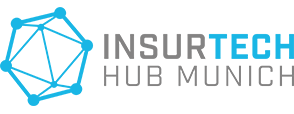“It’s my data” offers users a way to manage their personal data in a central repository and sell it to companies themselves. In doing so, they are initiating an urgently needed change in awareness.
Imagine your typical startup founder. Is he or she 27 years old? Wearing sneakers and a hoodie? Being a little bit geeky and carrying the aura of an economics student? Well, think again, because those guys are completely different: Alexander Sieverts (51) and his co-founder Michael Giese (53) can look back on more than two decades in management positions with companies such as American Express, Allianz and AT Kearney. “Breaking out of that and going back to zero, playing through the whole startup experience is, I would say, relatively untypical for someone our age and background”, says Sieverts.

They did it anyway, driven by their own conviction. With their startup “it´s my data” (IMD) they want to fundamentally change the way private users or legal entities look at the value of their data on the internet. It’s both about claiming sovereignty over proprietary data – both online and offline – and monetizing it if desired. “We believe that the times of users giving their data to companies for free will be over soon,” Michael explains.
Just a few clicks to data sovereignty
IMD enables its users to request all personal data from companies such as Amazon, Google, Facebook, banks, credit agencies or energy suppliers with just a few clicks and to store it centrally. Users can either have their data simply deleted or monetize it themselves by sharing it with companies in return for a corresponding service, for vouchers or discounts for example. The key belief of founders Giese and Sieverts is that a customer always remains the owner of his data and should only be required to share what he wants to. The General Data Protection Regulation (GDPR), which grants every person the right to view, correct or delete data stored about him or herself, provides the legal basis for that.
IMD doesn’t charge users for opening a data account or the retrieval and storage of data. Fees only apply for services as a credit rating for landlords, financial institutions or employers (6.90 euros). “We are currently working on enabling direct exchange between users and companies so that both sides can benefit from the added value,” says Michael.

Benefit for companies? Develop new digital services
But how do companies benefit? On the one hand, the transparency of the data strengthens customer loyalty, creates trust and underlines its own GDPR conformity. On the other hand, companies – and above all insurance companies – can use this qualified personal data to develop new products, services and business models.
“ITHM’s Innovation Programme is the first accelerator we applied for and we clearly see the benefits,” explains Giese. “As a founder you realize that getting the attention of and meeting with decision makers in large companies – exactly the people we have been in a former life – is quite a hassle. Without a facilitator like ITHM the startups in the network would have missed out on some promising opportunities – and at the same time, the partner companies would have missed a lot of inventive ideas”, he concludes.
Text: Daniel Lange

